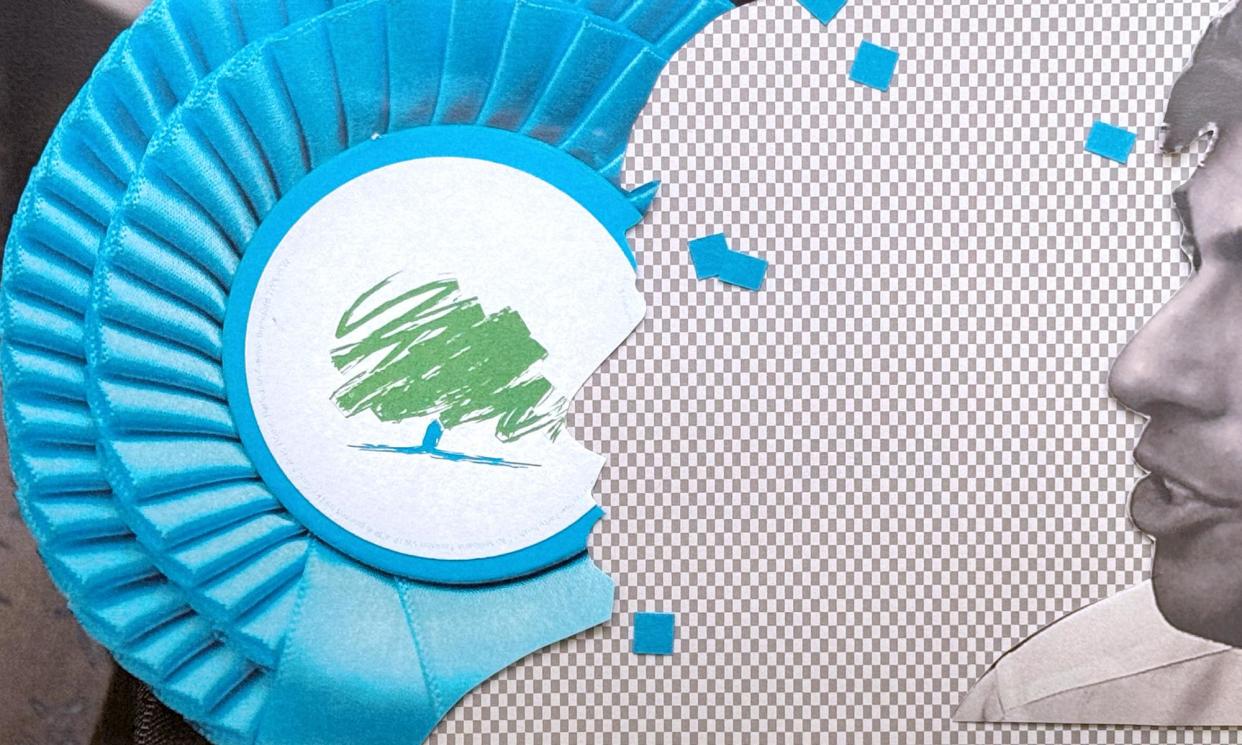Will Tories dump Rishi Sunak if election results worse than expected?

With just two days to go before a knife-edge election in Rishi Sunak’s own back yard, it was the shadow chancellor, Rachel Reeves, campaigning in North Yorkshire, where Labour is expected to win the mayoralty. The prime minister wasn’t even elsewhere on the campaign trail, but in London, speaking to editors at a media freedom event.
It is a stark contrast to the last time these seats in the local elections were in the spotlight. Boris Johnson named the day “Super Thursday” and was a looming presence on the campaign at the height of the Conservatives’ vaccine bounce, especially at the Hartlepool byelection, which the Tories won from Labour.
This time there is a likely to be catastrophic defeat to Labour in Blackpool South, where Reform UK is hoping to beat the Tories into third place.
It hardly matters because the presence of Sunak or otherwise is not the deciding factor in any of these local election races – although the Tories’ best hopes, Andy Street and Ben Houchen, have been keeping any mention of Westminster politics well away from their election leaflets.
But it is this lack of campaigning nous – a toe-curling ability to say the wrong thing, the nervous laugh when confronted – that is being talked about by Conservative MPs as a key argument for changing leader if the results over the weekend are even more disastrous than anticipated.
Sunak’s personal ratings are low but several Tory MPs who have been campaigning in recent weeks have said they did not detect a visceral dislike of the prime minister personally. “It’s the kind of dismissiveness, out-of-touch stuff,” one MP campaigning in the West Midlands said. “It’s the perception he gets a helicopter everywhere.”
The argument for making a change to a leader such as Penny Mordaunt would be that she at least may be able to campaign better during the general election. Sunak’s most recent outing at his PM Connect event was not even broadcast live.
He has been confronted by a voter on her local hospital, nervously laughing at her complaints and appearing to walk off. He once asked a homeless man: “Do you work in business?” The PM has also been widely mocked for appearing to be unable to use a debit card and for refuelling a borrowed car.
Many times No 10 has said the exchanges were taken out of context, but they have defended how often Sunak seems to use a helicopter to travel to events, including to commute to his own constituency.
“I just think, we’re going to get something like this every single day of the election campaign unfortunately,” one Tory MP complained. “He can’t do human, he looks rattled.”
Sunak seems to be the only person in Westminster prepared to believe the polls can be wrong, when even the most senior Tory strategists have privately concluded the campaign will be about damage control. The PM told activists in CCHQ this week they would be part of the “greatest comeback in political history”.
But if the aim of the next Tory election campaign will be to save as many seats as possible, then very little else works as an argument to change leader other than Sunak’s cringeworthiness.
There are few reasons on policy alone to make the change. Plans by Tory agitators for a 100-day policy blitz reveal just how difficult it is to draw significant differences.
The proposals include an increase in defence spending and cutting the benefits bill to reduce payments for anxiety, both of which Sunak has already announced, or vague uncosted pledges to increase prison capacity or to stop his proposed smoking ban.
Those who hold the key to Sunak’s future are the Tory MPs with chunky majorities – perhaps 10,000 or more – who could win on a good day or lose on a bad one. The issue is that no one really knows what will contribute to a good or bad day for those MPs. Is it a harder line on immigration or culture wars? A more one-nation approach? An early election? A January election? A new leader – Mordaunt or Robert Jenrick? Those theories have been gamed in every direction – with no clear answer forthcoming.


